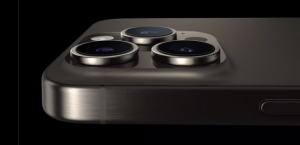American technology giant Apple is reportedly working on a project to shorten the ‘Hey Siri’ wake phrase command to just ‘Siri’. According to a newly released report, users will need to say just ‘Siri’ in order to launch the voice assistant on their Apple devices – iPhone, iPad, Apple Watch, Mac, and HomePod, followed by their desired command.
This latest development comes after a report by Bloomberg’s tech journalist Mark Gurman, in which he wrote about Apple’s possible plans for improving Siri. He stated that Apple had been working on this new feature for the last few months and the change may be rolled out by 2024.
Also Read | ISRO plans to return to Mars, explore dark side of moon with Japan
“By removing the ‘Hey’ in ‘Hey Siri’, Apple would also, in turn, speed up back-to-back requests,” the report says. The change to Siri’s wake words will reportedly not be the only change planned for the upcoming days. According to Gurman, the tech giant is also planning to integrate the voice assistant into third-party apps and services while also aiming to improve Siri’s ability to understand user commands and work without disturbances.
As per Gurman, before Apple rolls out the change, it will carry out a significant amount of ‘AI training and underlying engineering work’ for the new feature to function properly, and ensure that the voice assistant will be able to understand the single wake word in multiple dialects and accents.
Also Read | Meet Gaia BH1, the closest-known Black Hole from Earth
By replacing the current wake phrase with a single word, Apple aims to compete with Amazon’s Alexa which requires users to say “Alexa” rather than “Hey Alexa”. In 2018, Microsoft also switched its wake words from “Hey Cortana” to just “Cortana” on smart speakers.
Apple debuted Siri, the voiced personal assistant on the iPhone 4 in 2011. Susan Bennett’s voice was used as Siri’s first voice from 2011 to 2013. Earlier this year, Apple also added a new gender-neutral voice recorded by a member of the LGBTQ+ community to give users the option to choose a ‘voice that speaks to them’.





